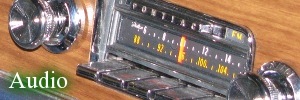















Zambians Test Inexpensive Technology to Build Roads |
|---|


|
Danstan Kaunda
September 18, 2007
 Listen to Zambians Test Inexpensive Technology to Build Roads - MP3 - 680KB - 2:53
Listen to Zambians Test Inexpensive Technology to Build Roads - MP3 - 680KB - 2:53
 Listen to Zambians Test Inexpensive Technology to Build Roads - RealPlayer - 680KB - 2:53
Listen to Zambians Test Inexpensive Technology to Build Roads - RealPlayer - 680KB - 2:53
Engineers in southern Africa have developed a product called Ecobond – a non-toxic hybrid adhesive sealant for the construction of roads and buildings. Voice of America English to Africa reporter Danstan Kaunda in Lusaka, Zambia says that the new material could cut the cost of road construction in half.
The initial test project of Ecobond technology in Zambia involves the construction of a 300-kilometer stretch of road in Mpulungu, northern Zambia.
Ecobond is a combination of sawdust, paper sludge, palm fiber and other inorganic wastes chemically mixed with Urea Formaldehyde – a colorless chemical liquid. It is processed industrially on a large scale by the Pretoria-based plant Techneco, Ltd., of South Africa.
In road construction, it’s mixed with gravel and then sprayed over the surface, before being compacted by a heavy roller, which also levels the surface.
Kim Anderson is a Danish expert working on the project in Zambia.
He said Ecobond includes ingredients with chemical properties similar to so-called “cement” used by termites in making their mounds. With Ecobond, the ingredients are mixed with clay. So far, he says, the product has shown promise.
“The best proof that we have now is the [Ecobond] road that we have constructed in South Africa. It has been there of over 10 years now. There have been about over 11 million vehicles driving through there and thousands of other heavy trucks every week running on the same road [and still in good condition].”
But the European Union says continuous research in such a technological development is needed to ensure durability in road construction before investing in it.
The EU has been supporting Zambia in various sectors such as rural development, education, health and mining. Jurgen Kettner is head of infrastructure development at the European Union:
“In the past, there were a lot of magic methods developed for making cheap and durable roads [in Africa]. They included the use of chemicals and other additional stuff, but at the end of the day, most of those [methods] turned out not to be durable of long-term structures.”
The Ecobond roads are said to be much cheaper than conventional asphalt ones because most of the raw materials, like soil and gravel, are readily available.
Anderson said Ecobond roads are less energy-consuming than asphalt road. A main component in an asphalt road – bitmap -- has to be heated before being applied to a surface:
“The good thing with the Ecobond road construction is that we do not use too much energy or oil, petrol and not even diesel like it is the case with asphalt roads. This makes it about 50 to 60 per cent cheaper. “
Ecobond was also used in making bricks for the Eastgate Shopping Mall in Harare, Zimbabwe.
So far it seems to be cheap, durable and environmentally friendly. If it tests well in Zambia, Ecobond will also be extended to other southern African countries like Botswana and Malawi.
